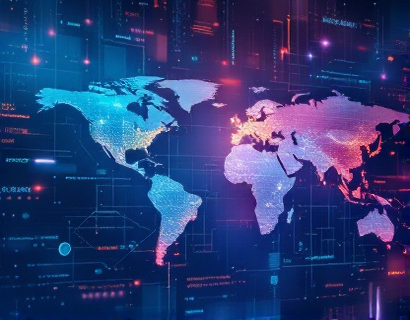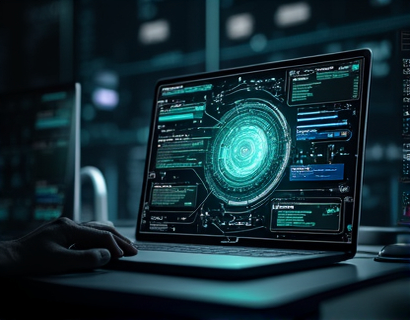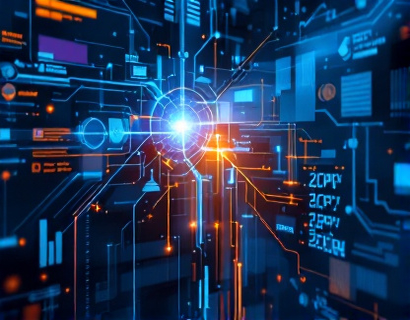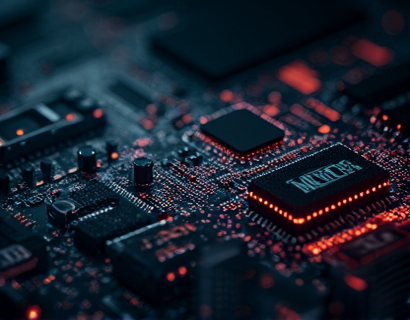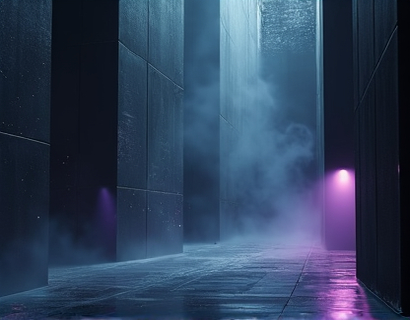Revolutionizing Online Tributes: The Intersection of AI and Blockchain for Secure and Personalized Memorial Creation
The digital age has transformed numerous aspects of our lives, including how we remember and honor our loved ones who have passed away. Traditional methods of creating memorials, such as physical headstones or printed books of remembrance, are being complemented and sometimes replaced by innovative online solutions. These new platforms leverage advanced technologies like Artificial Intelligence (AI) and blockchain to offer secure, personalized, and lasting tributes. This article delves into how these cutting-edge technologies are revolutionizing the creation of online memorials, providing bereaved families and individuals with meaningful ways to remember and celebrate the lives of their loved ones.
The Need for Innovative Memorial Solutions
The loss of a loved one is one of the most profound and emotional experiences anyone can go through. The process of creating a memorial is a way to cope with grief, honor the deceased, and keep their memory alive. Traditional memorials, while cherished, have limitations. They can be static, difficult to update, and vulnerable to physical damage or loss. Moreover, the digital footprint of these memorials can be fragile, with data at risk of being lost or compromised. There is a growing need for memorial solutions that are not only secure and durable but also personalized and easily accessible to those who wish to pay their respects.
AI in Memorial Creation
Artificial Intelligence plays a pivotal role in enhancing the personalization and functionality of online memorials. AI algorithms can analyze vast amounts of data, including photos, videos, texts, and other digital artifacts, to create a comprehensive and dynamic tribute. Here are some ways AI contributes to the memorial creation process:
- Personalized Content Curation: AI can sift through a vast collection of media and text to curate the most meaningful and representative content for the memorial. This includes selecting favorite photos, compiling cherished quotes, and summarizing significant life events.
- Emotional Analysis:
- Interactive Features:
- Predictive Personalization:
AI can analyze the tone and sentiment of written content, such as letters, emails, and social media posts, to capture the essence of the deceased's personality and relationships. This emotional insight can be used to create a more nuanced and heartfelt tribute.
AI-powered chatbots and virtual assistants can be integrated into memorials, allowing visitors to engage in conversations that feel natural and personal. These interactions can provide comfort and a sense of connection to the deceased.
By learning from user interactions, AI can tailor the memorial experience to individual visitors, recommending content, stories, or features that resonate most with them. This ensures that each visit to the memorial is unique and meaningful.
Blockchain for Security and Immutability
Blockchain technology offers a robust solution for ensuring the security, integrity, and permanence of digital memorials. Here’s how blockchain contributes to the memorial creation process:
- Decentralized Storage:
- Immutable Records:
- Transparency and Trust:
- Access Control:
Blockchain's decentralized nature means that memorial data is not stored in a single, vulnerable location. Instead, it is distributed across a network of computers, reducing the risk of data loss or tampering.
Once data is recorded on the blockchain, it cannot be altered or deleted. This ensures that the memorial remains a true and unchangeable reflection of the deceased's life, providing peace of mind to those who create and visit it.
Blockchain's transparent ledger allows all parties to verify the authenticity and integrity of the memorial data. This transparency builds trust among family members and friends, ensuring that the memorial is a collective and honest tribute.
Blockchain enables fine-grained access control, allowing creators to manage who can view and interact with the memorial. This ensures that privacy is maintained and that only trusted individuals can make changes or additions.
Combining AI and Blockchain for Enhanced Memorials
The true power of these technologies emerges when they are combined. A platform that integrates AI for content curation and personalization with blockchain for security and immutability offers a comprehensive solution for creating and maintaining online memorials. Here’s how such a platform can benefit users:
Firstly, the AI-driven content curation ensures that the memorial is rich with meaningful and relevant content, providing a comprehensive view of the deceased's life. The blockchain layer guarantees that this content is securely stored and cannot be altered or lost, preserving the integrity of the tribute. The combination of these technologies also allows for a highly personalized experience, with AI tailoring the memorial to the preferences and memories of visitors, while blockchain ensures that these personal touches are preserved for eternity.
Moreover, the platform can offer additional features that enhance the memorial experience. For instance, AI can facilitate the creation of virtual reality (VR) or augmented reality (AR) experiences, allowing visitors to explore a digital recreation of places significant to the deceased. Blockchain can secure these experiences, ensuring they remain accessible and unchanged over time.
Benefits for Bereaved Families and Individuals
The integration of AI and blockchain in memorial creation offers numerous benefits for those who are grieving:
- Lasting Legacy: The combination of AI and blockchain ensures that the memorial is a lasting and secure tribute, providing a lasting legacy for the deceased.
- Personalization: AI enables a deeply personal and customized memorial that reflects the unique life and personality of the loved one.
- Privacy and Control: Blockchain's access control features allow families to manage who can view and interact with the memorial, maintaining privacy and dignity.
- Community Support: The platform can foster a community of support, where friends and family can share memories, offer condolences, and find comfort in a shared space.
- Ease of Access: Online memorials are accessible from anywhere in the world, making it easier for distant relatives and friends to pay their respects.
Challenges and Considerations
While the potential of AI and blockchain in memorial creation is vast, there are challenges and considerations to address:
Firstly, the technical complexity of these technologies can be a barrier for some users. A user-friendly interface and comprehensive support are essential to ensure that everyone can benefit from these innovations.
Secondly, there are privacy and ethical considerations, especially regarding the use of personal data. It is crucial to implement robust privacy measures and comply with data protection regulations to safeguard the sensitive information associated with memorials.
Lastly, the emotional and psychological impact of losing a loved one should not be underestimated. While technology can provide tools for remembrance, it is important to offer emotional support and resources to those who may need them.
Conclusion
The convergence of AI and blockchain technology is transforming the way we create and maintain online memorials. These innovative solutions offer secure, personalized, and lasting tributes that honor the memories of our loved ones. As these technologies continue to evolve, they have the potential to provide meaningful and comforting ways for bereaved families and individuals to remember and celebrate the lives of those who have passed away. The future of digital memorials is bright, offering hope and solace in times of grief.










